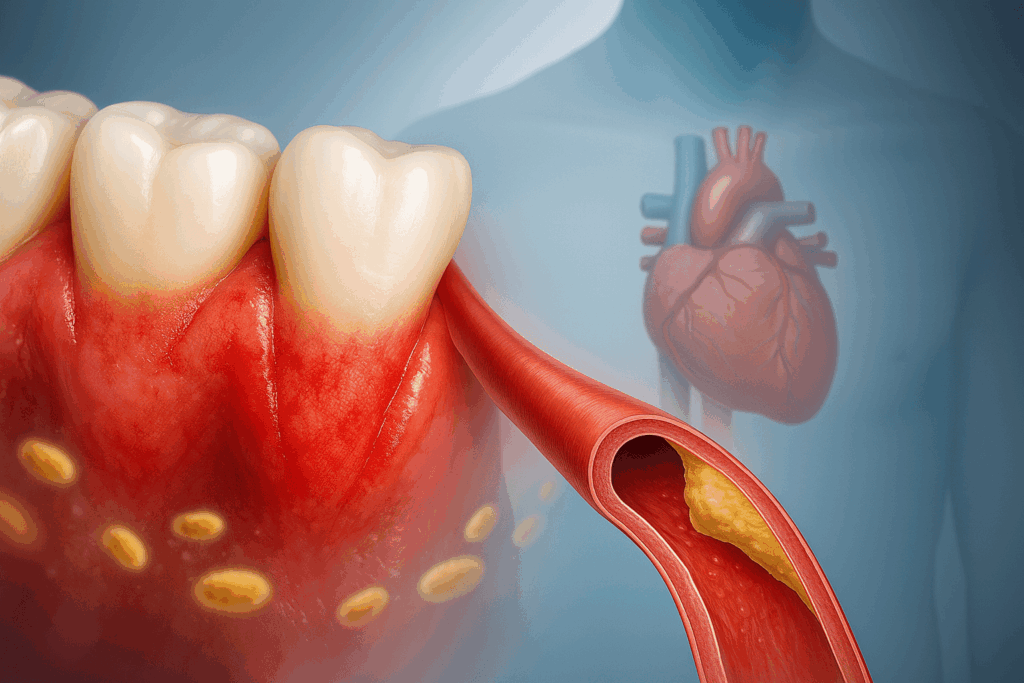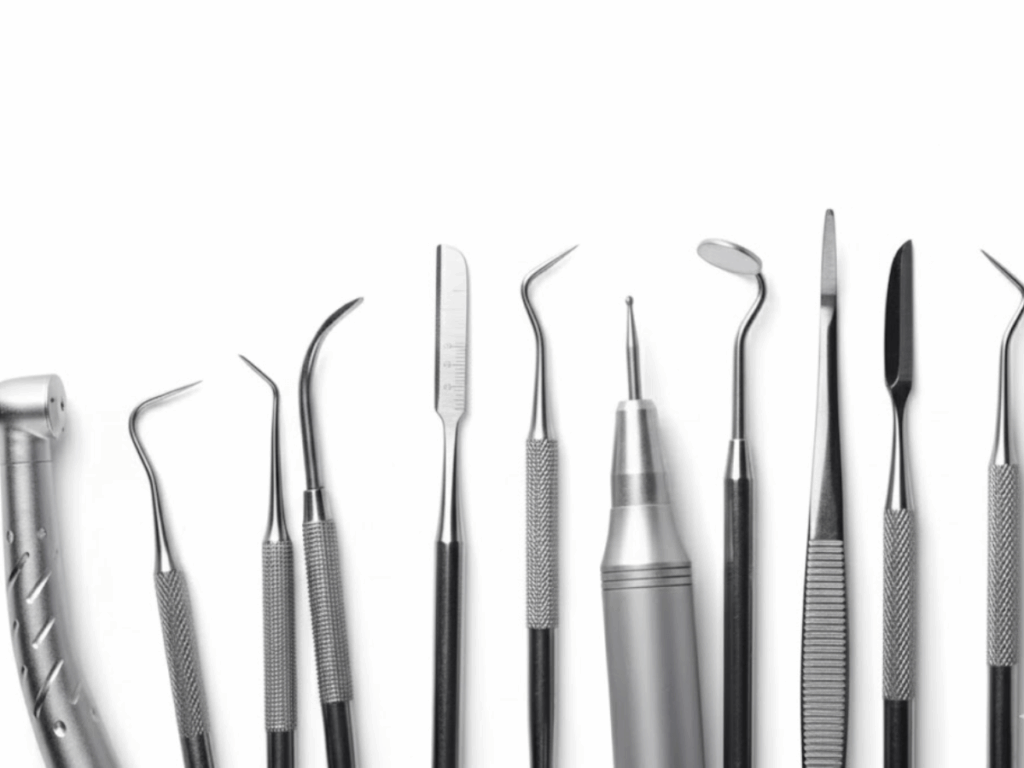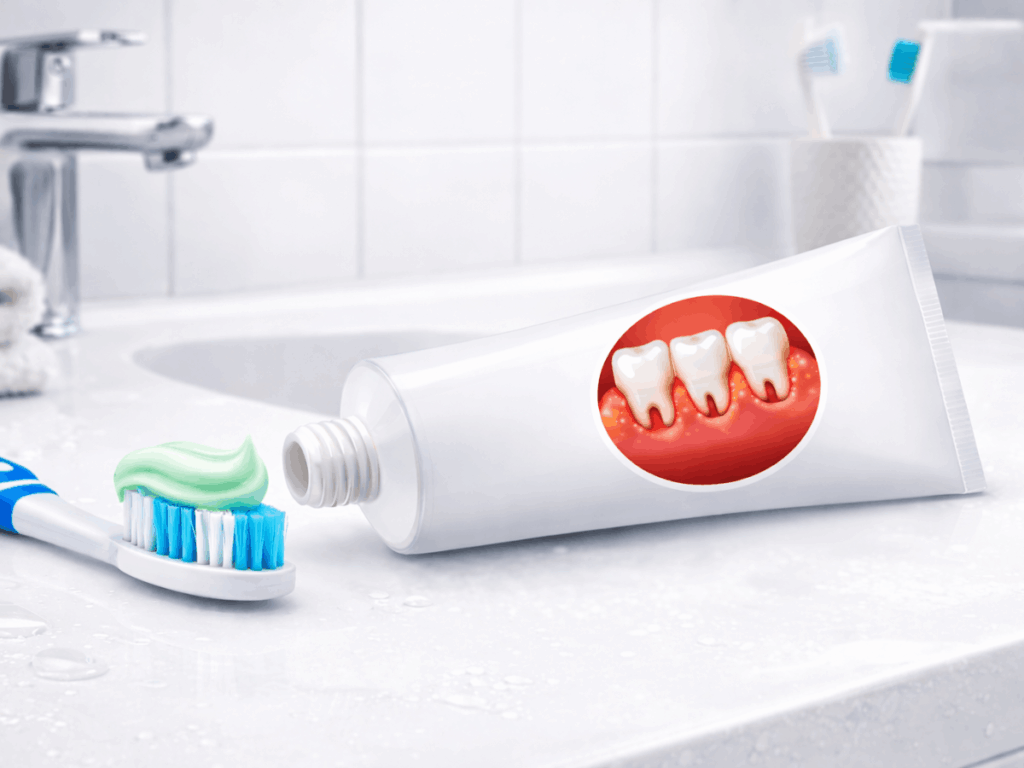Healthy gums do more than keep your smile comfortable. Research links chronic gum inflammation to increased systemic inflammation, stressing the blood vessels that support your heart.
In this post, we’ll explain the evidence behind the gum disease and heart health connection, clarify what recent studies really show, and share practical steps you can take to lower your risk.
At our practice, we combine the latest periodontal diagnostics, including digital charting with personalized treatment plans to protect both your oral health and cardiovascular wellness. Schedule a consultation today to see how we can help you maintain a healthier smile and a stronger heart.
The Mouth–Heart Connection: Why Dentists Care About Your Heart
Harvard Health reports that people with gum disease face a higher risk of cardiovascular problems. Before we get into the details, here’s the simple idea: ongoing gum issues can raise body-wide inflammation and let bacteria travel, which adds stress to your heart and blood vessels.
Shared Inflammatory Signals
Periodontal disease raises markers like C‑reactive protein (CRP), interleukin‑6 (IL‑6), and TNF‑α—signals also tied to arterial plaque and cardiovascular events. A 2024 study reported in ScienceDirect found that this systemic inflammation can injure endothelial cells, strengthening the link between oral disease and heart risk.
Bacteria Entering the Bloodstream
Bleeding gums create a pathway for mouth bacteria (e.g., Porphyromonas gingivalis, Fusobacterium nucleatum) to enter the bloodstream. A 2022 review in the National Library of Medicine notes that these bacteria can inflame vessel walls and encourage clot formation, increasing cardiovascular risk.
How Chronic Infection Strains the Heart
Long-term gum infection can:
- Reduce vessel flexibility (endothelial dysfunction)
- Thicken and destabilize arterial plaque
- Compound risk when paired with smoking, diabetes, or high blood pressure
Treating gum disease helps protect your heart. If you notice bleeding gums, bad breath, or shifting teeth, schedule a periodontal evaluation. We use digital charting, salivary testing, and personalized care to support both your oral and cardiovascular health.
Who Is Most at Risk
If you’re wondering who should pay extra attention to this link between gums and heart health, start here. The following groups face a higher combined risk:
- People With Uncontrolled Diabetes, Smokers, and Older Adults: Poor oral health is more common when blood sugar is high, tobacco dries the mouth, or age slows healing. That combination can trigger inflammation around the gum line, let gum disease bacteria enter the bloodstream, and raise cardiovascular health concerns.
- Patients With a Family History of Heart Problems: If coronary artery disease or other heart problems run in your family, active oral disease can stack another risk factor on top.
- Anyone Skipping Basic Care and Regular Dental Checkups: Irregular cleanings, no fluoride toothpaste, and rushed brushing let plaque sit, leading to tooth decay, tender gums, loose teeth, or even tooth loss if left untreated.
Not sure where you stand? Book a periodontal evaluation so you can stay healthy from teeth and gums to heart and arteries.
Warning Signs in Your Mouth You Should Not Ignore
Small changes add up, these symptoms often mean active gum disease, not just “sensitive gums.”
- Red, Swollen, or Bleeding Gums: Inflammation and bleeding (especially when brushing or flossing) signal active gum disease, not normal brushing.
- Persistent Bad Breath or a Bad Taste: Ongoing odor or a metallic taste often comes from bacteria trapped below the gum line.
- Gum Recession or Loose Teeth: When gums pull back or teeth start to shift, the supporting bone may already be breaking down.
Daily Habits That Protect Gums and Support Heart Health
Small, consistent changes at home lower oral bacteria, calm chronic inflammation, and ease the load on your cardiovascular system.

Brush the Right Way and Clean Between Teeth
Use fluoride toothpaste twice a day, angle bristles toward the gum line, and brush for two full minutes. If your gums feel tender, our roundup of the best toothbrushes for sensitive gums, according to dentists can help you choose a gentler option. Floss or use interdental brushes daily to remove plaque before it hardens.
Eat for Lower Inflammation
Build meals around fiber-rich vegetables, fruits, whole grains, and lean proteins. Limit added sugar and ultra-processed snacks that feed plaque-forming bacteria.
Quit Smoking and Manage Stress
Tobacco and chronic stress both trigger inflammation and slow healing. Stopping smoking and using stress reducers (exercise, sleep, mindfulness) support a healthier mouth and heart.
Keep Every Maintenance Visit
Regular dental checkups and cleanings catch early-stage gum problems, remove plaque before it hardens, and help you stay on track with personalized home care.
Curious how gum care shifts in your 20s, 40s, or beyond? Check our gum health across life stages guide for age-specific pointers.
Healthy Gums, Healthier Heart
Gum disease is more than a mouth problem—it fuels chronic inflammation, lets gum disease bacteria travel, and can raise cardiovascular disease risk. Paying attention to red, swollen gums, bad breath, or loose teeth, then following through with daily care and regular dental checkups, protects both dental health and cardiovascular health.
Our team is committed to protecting your smile with gentle, personalized care. If you’re dealing with sensitive teeth, gum irritation, or need guidance choosing the right toothbrush, we’re here to help. Contact our Pennsylvania office at (724) 558-8222 or use our contact form to schedule a visit and get support tailored to your oral health needs.

Dr. Elizabeth Wakim, DDS, is the founder of Enhanced Wellness. She’s a compassionate and highly-regarded dentist with her own practice in Washington, Pennsylvania, known for providing modern, comprehensive dental care, botox and facial aesthetics with a focus on patient comfort and anxiety reduction, serving general, cosmetic, and pediatric dentistry needs.








